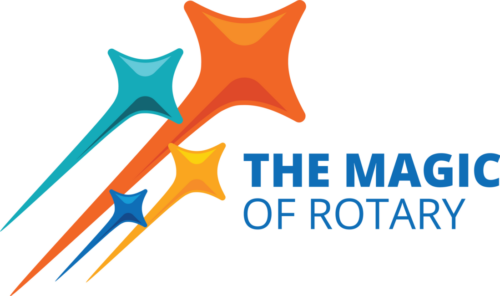Richard Van Kirk joined us as today’s lunch speaker. Dick served as president and CEO of Special Olympics Southern California from January of 1995 through 1999. He continues to serve as president emeritus on its board today. Bill Shumard now leads the organization.
Dick earned a B.S. in mechanical engineering through CalTech and his masters at Claremont. Nearing retirement from a long tenure at Ernst & Young, Dick chose to make a difference through non-profits in the next phase of his career. Dick was among 200 qualified candidates and chosen as the finalist to lead Special Olympics Southern California as its CEO.
Special Olympics today has brand name recognition that surpasses the likes of Nike. 177 countries world-wide participate with their athletes in Special Olympics in as many as 70,000 competition events each year. In the Southern California branch of Special Olympics, the organization manages as many as 8,000 volunteers and personnel. 15,600 athletes compete in Southern California in 12 sports through two seasons. The nearest program locations are in the cities of San Gabriel and Pasadena. Over the past 15 years, Southern California’s games have been held at the university campuses of Long Beach State and Cal State Fullerton. 1,500 athletes competed in those games.
Each Olympics athlete is either intellectually or physically disabled. One of the purposes of Special Olympics is to assure competitors that no matter where anyone falls, each person is valued, all deserve respect and need to provide respect to others.
Special Olympics puts their money where their mouth is; 25 years ago, Special Olympics instituted a leadership plan that developed opportunities for athletes to grow with the organization as employees. It’s now comprised of 52% intellectually disabled and10% physically disabled employees.
The national organization is made of 52 chapters, each operated as their own 501(c)(3)s. The national organization has set in place three strategic goals for the near future. They are:
1. Establishing a unified sports program.
2. Forming a young athlete’s program in ages from 2-7 years. (The current structure is based on competitors beginning at age eight, and
3. Creating a Healthy Athletes initiative that makes physicians, physical exams and health education available to the athletes.
Today, about 3% of the available 500,000 disabled are reached through Special Olympics. The organization’s primary objective is to touch many more of the lives of these potential athletes through these strategic initiatives.
What’s next for Special Olympics Southern California?
Because the organization sees that so many more athletes can be served, Southern California is looking ahead to expansion and greater exposure. The organization represented by Dick has won the bid to host the 2015 World Special Olympic Games. The games will include 9 days of competition and begin with opening ceremonies July 25.
For the first time in the international organization’s history, the World Games will be televised live. The upcoming games will be the largest sporting event in Los Angeles since the 1984 Olympics and is estimated to be the largest sporting event in the world.
An event of this size doesn’t come cheap. Its $85 million budget is funded by generous donors and does not include government financing or support. Fund raising efforts by our cities’ finest through such events as the Law Enforcement Torch Run and pulling a Boeing 737 jet 100-feet have raised $1.2 million for the Olympics.
Southern California will send 100 athletes to 100 host communities prior to the start of the games to give the athletes – and the host cities – every opportunity to learn about each other’s cultures.
The City of Arcadia is preparing to be one of the 100 host cities, thanks to the efforts of our own Rotarian, Bruce McCallum.
Expense attributed to serving each athlete is about $500. Special Olympics Southern California has removed the financial barrier for athletes to compete in the games, primarily through generous donors.
If you have any interest in supporting the Special Olympics Southern California through your time or funds, please click www.sosc.org.

 Teri Muse Walk-a-Thon for mental health awareness
Teri Muse Walk-a-Thon for mental health awareness  10th Anniversary of The Field of Honor
10th Anniversary of The Field of Honor  Arcadia Rotary’s Installation of it’s 98th President
Arcadia Rotary’s Installation of it’s 98th President  Let’s Recap! 6/21/24
Let’s Recap! 6/21/24